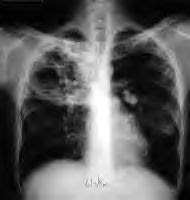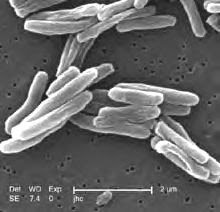Arch Intern Med. 2007;167(22):2443-2452.
Trends in Tuberculosis/Human Immunodeficiency Virus Comorbidity, United States, 1993-2004
Rachel Albalak, PhD; Richard J. O’Brien, MD; et al.
Background To our knowledge, this is the first assessment of trends in tuberculosis (TB)/human immunodeficiency virus (HIV) comorbidity in the United States based on national TB surveillance data.
Methods We analyzed all incident TB cases reported to the Centers for Disease Control and Prevention national TB surveillance system from all 50 states and the District of Columbia from 1993 through 2004. Trends in TB/HIV cases were examined according to selected demographic and clinical characteristics.
Results Cases of TB/HIV decreased from 3681 (15% of 25 108 TB cases) in 1993 to 1187 (8% of 14 515 TB cases) in 2004, accounting for 23% of the overall decrease in TB cases during this period. The TB/HIV case rate decreased from 1.4/100 000 in 1993 to 0.4/100 000 in 2004. The highest TB/HIV comorbidity rates persisted in persons aged 25 to 44 years (13.8%), males (9.7%), US-born persons (10.7%), non-Hispanic blacks (17.8%), and persons from the Northeast (11.0%) and the South (10.1%). Propensity stratification, used to account for the unequal probability of patients with TB being tested for HIV during the study period, did not show important differences in TB/HIV comorbidity trends.
Conclusions Comorbidity due to TB/HIV decreased substantially between 1993 and 2004, primarily in US-born persons in states that experienced a TB resurgence between 1985 and 1992. These decreases coincide with improvements in TB control and advances in HIV treatment and diagnosis. The overall decreases obscure the wide variation in comorbidity that exists among some demographic groups and the recent slowing in the decline over the past 3 years.
WHAT'S NEW IN TUBERCULOSIS
Tuesday, 11 December 2007
US statistics
Labels:
Albalak,
CDC,
Center for Disease Control,
HIV,
HIV co-morbidity,
O'Brien,
R.,
R.J.,
Statistics US
Subscribe to:
Post Comments (Atom)





No comments:
Post a Comment